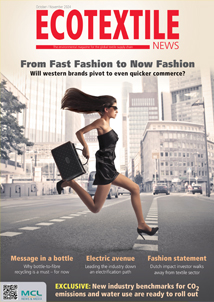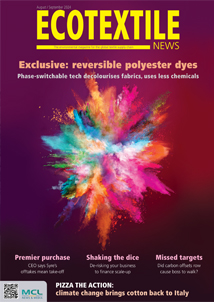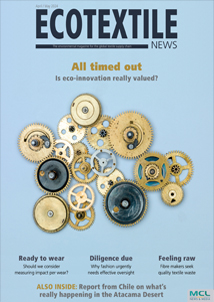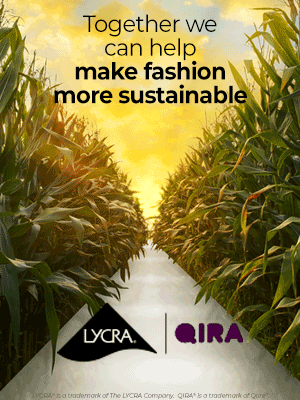WAKEFIELD – As we close down for the Christmas period we’d like to extend ‘Season’s Greetings’ to all of our readers and wish everyone all the very best for 2022.
And as we look back on the stories that made the biggest impact with our readers this year, one in particular timely news item stands out – our exclusive about the 'chemical cocktail' found in COVID-19 facemasks, which was our most read story of all time.
The warning from leading scientists that wearing certain types of face masks for long periods of time could result in potentially hazardous chemicals being inhaled deep into human lungs not only topped the ratings on Ecotextile News, it was picked up by leading news organisations around the world.
Second most popular story this year was a consumer survey, commissioned by Fashion Revolution, which highlighted growing concern among consumers in countries across Europe over the environmental and social impacts of garment production.
Then came a study by the University of Liverpool which concluded the sustainability social media tactics of fashion firms might be “counter-productive”, followed by a report from the Changing Markets Foundation accusing the global fashion industry of becoming ‘dangerously dependent’ on synthetic fibres.
Regenerative agriculture became something of a buzzword this year, perhaps reflecting the popularity of our fifth most popular story - that the Kering luxury fashion group had partnered with Conservational International to launch its 'Regenerative Fund for Nature' strategy.
Looking ahead to 2022, it seems likely that climate change will dominate the headlines with the leading players in our industry continuing to share their commitments on reducing greenhouse gas emissions and achieving net zero.
However, we also expect news to emerge on how the measurement and reporting of environmental impacts in the textile industry has been potentially oversold. We’ve seen over the past two decades that large corporations have increased reporting on their own impacts, yet industry carbon emissions have continued to rise, and environmental damage has accelerated.
We hope that ways to measure social and environmental impact in our industry will become more rigorous, accurate, and crucially, widely accepted through initiatives like science-based targets. Yet agreement on measurement tools is likely to be the subject of much debate and division next year.
Circularity will remain a key theme. This year we have seen a big increase in stories about secondhand fashion, garment rental and textile recycling. These will no doubt continue to accelerate in 2022.
Our industry is also likely to see continuing pressure over its contribution to microplastics pollution with fibres from garments made with synthetic textiles now regarded as one of the leading causes of this ecological threat.
Social inequity, too, is still increasing – exacerbated by lockdowns due to the pandemic, which has also caused severe bottlenecks in textile supply chains. Mandatory due diligence legislation from the European Union, and other bodies, will seek to put pressure on brands and retailers to do more to look after those who make their clothes.
It will also be interesting to see how the new International Accord for Health and Safety in the Textile and Garment Industry goes about achieving its goals of promoting workplace safety for garment workers in Bangladesh and other supply countries.
In China, brands and retailers are likely to remain conflicted on the issue of forced labour in the Xinjiang region, the country's cotton hub, where they have found that their opposition to such abuses can have a price to pay in terms of access to the lucrative Chinese market.
Some sections of our industry will no doubt open their marketing war-chests again – to protect their interests. For example, we know of one organisation that in 2021 spent €700,000 alone with a third-party marketing firm to defend its own environmental position, which could well backfire.
There will no doubt be many more greenwashing attempts by companies anxious to impress upon us their sustainability credentials. As ever, Ecotextile News will be vigilant in covering the more significant developments and exposing those that are little more than hot air.
Finally, the MCL News & Media team would like to thank all these readers, but also our sponsors, partners and advertisers for their continued support in our efforts to bring meaningful, independent commentary on environmental and social issues in our industry.
As ever, we promise to keep filtering out the white noise of information to break the news that really matters to you, the industry and most of all, our planet.
Sincere best wishes for a peaceful and prosperous 2022.

















































